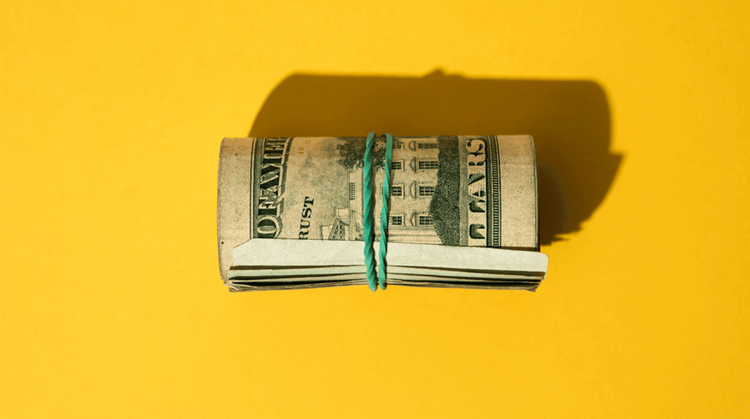When Is The Down Payment Due For A New Construction Home?


by Tyler Forte
You’re juggling a lot when you’re buying a new construction home. It could be as a first-time homebuyer, and you’re scrounging together a down payment without the help of equity from a previous home. Or you may own a house, but you aren’t sure how to access the equity before you make the move to a new construction home. Either way, the goal is achieving a dream home through your home purchase. When is the down payment due for a brand new home?
The answer depends on many factors, including typical payments you may owe the builder at various stages throughout the build process and the type of financing you decide to use. We’ll walk you through the scenarios below.
What Is The Difference Between A Down Payment, Earnest Money, And Builder Deposit?

Down payment
If you are financing your new home with a loan, the downpayment is the portion you are paying in cash. The remaining amount would be financed by the lender. Your down payment relates to your mortgage rather than your offer. In a perfect world, you may be able to pay for your house in 100% cash. But most people can’t swing this. Many of the loan types that we’ll discuss below require a percentage paid in cash to get approved for a loan.
Earnest money
Earnest money is the amount you agree to pay after the seller accepts your offer in a real estate transaction. When a seller decides to take their house off the market and go under contract with you (the buyer), there has to be something to secure this risk. They essentially turn down the other offers, and the earnest money shows good faith. If you were to walk away, they would receive the earnest money – although a good Realtor can generally help you get your earnest money back if you decide to walk away from the transaction. The earnest money is intended to protect the seller from financial risk. Often real estate contracts make it sound like the earnest money is going straight to the seller. But it is held in an escrow account by a trusted third-party and is eventually applied to your down payment when the house closes.
You can pay as little as 1% for earnest money, but some builders will require an earnest money deposit that is closer to 5%.
Builder deposit
Earnest money acts as a deposit when you are working through closing a house, but often in the new construction world, there is a builder deposit. Builder’s Deposits come about during the customization process. A builder does not want to lose money on upgrades that you choose for a house that you customize. They often ask for deposits for these customizations and materials. Builders can make more money on the house with standard versions of things like cabinets, floors, and countertops. After selecting upgrades, they want to ensure they are not losing money if you back out.
Is A Down Payment Required For A New Construction Home?
The down payment is due at closing. Depending on the type of loan you use, your lender would determine the minimum down payment requirements for a new construction home.
What Are The Loan Options When Buying A New Construction Home From The Builder?
You have many types of loans. Be sure to shop around for the best loan for your situation. Here’s a rundown of loans you can consider when buying a new construction home from a builder.

Conventional loan
Conventional loans come from private mortgage lenders and banks, and the US government does not back these loans. They are categorized as:
- Conforming loans conform to a set of standards by the Federal Housing Finance Agency (FHFA). These rules relate to things like debit, credit, and loan size.
- Non-conforming loans do not follow FHFA guidelines. They are for people with extraneous situations. These can include large loans, bad credit, or even people who experience bankruptcy.
Who should get a conventional loan?
The conventional home mortgage is the most popular loan for buying a house for a reason. Homebuyers who can make a solid down payment and have a healthy credit score should pick a conventional fixed-rate mortgage. You can also shop around for the most competitive mortgage rates.
What's the minimum required down payment for a conventional loan?
The minimum required down payment for a conventional loan is 3% of the purchase price. If you do not put down at least 20%, you will be required to pay PMI. PMI stands for private mortgage insurance, and it protects the lender if you default on the loan.
Pros of using a conventional loan
- You can use conventional loans for a variety of homes: primary homes or investment properties.
- Lower borrowing costs than other mortgages, but you will find slightly higher interest rates.
- Sellers can contribute to closing costs if you negotiate this.
- Your down payment can be as small as 3%, but you will have to pay for PMI each month.
- You can eventually get rid of PMI by reaching 20% in equity or refinancing.
Cons of using a conventional loan
- Conventional loans require a higher down payment compared to other options (3% minimum downpayment).
- You need a strong credit score (often above 620) to qualify.
- PMI will be part of your monthly cost if you do not make enough down payment. Often, you will have to refinance to get rid of PMI.
- The application process can be a little intense because you need a lot of income, employment, assets, and down payment documentation.
- The DTI (debt-to-income ratio) needs to be no more than 43%.
- Conventional loans have limits on the amount you can borrow.
FHA loan
An FHA loan is a mortgage backed by the government with more relaxed financial requirements.
Who should get an FHA loan?
If you’re struggling with your down payment or have a below-average credit score, an FHA loan may be for you.
What's the minimum required down payment for an FHA loan?
It depends on your credit score. If you’re at a 580 credit score, you can swing 3.5% of the purchase price. But if your credit score is under 500, then you’re required to put down at least 10%.
Pros of using an FHA loan
- You can qualify for an FHA loan with a lower credit score, and lenders aren’t scared off because the government backs you.
- It can be an excellent choice for a first-time homeowner who doesn’t have access to home equity for a sizable down payment.
- An FHA loan can help those on the financial edge achieve homeownership.
Cons of using an FHA loan
- The bank requires you to pay mortgage insurance premiums (MIPs) with an FHA loan. This is similar to PMI with a conventional loan, and provides the lender with a safeguard if you default on the loan.
- If you’re competing alongside other offers in a competitive market, an FHA loan is less competitive than a conventional mortgage.
- FHA loans may not cover enough for the house you have in mind, especially if you live in a high-cost area.
VA loan
A VA loan is for veterans, requires no down payment, and is backed by the Department of Veteran Affairs (VA).

Who should get a VA loan?
Only U.S. military (active duty and veterans) and their families qualify for VA loans.
What's the minimum required down payment for an VA loan?
You are not required to make a down payment for a VA loan.
Pros of using a VA loan
- You do not need a down payment or mortgage insurance for a VA loan.
- Lower rates and costs compared to other mortgage options.
- Closing costs are less with a VA loan.
- You don’t have to wait as long after a foreclosure or bankruptcy to qualify for a VA loan.
Cons of using a VA loan
- You have to pay a funding fee at closings instead of mortgage insurance.
- VA loans only work for your primary residence, so you can’t use it for investment properties.
- To make your offer competitive, you can’t waive contingencies like a home inspection or appraisal like other loan types.
- Sellers might not think a VA loan is as competitive as other types of financing.
USDA loan
A USDA loan is for a borrower in a USDA-eligible rural area who meets income limits to qualify.

Who should get a USDA loan?
Lower-income residents who want to buy a home in a rural area will find USDA loans appealing.
What's the minimum required down payment for an USDA loan?
There is no down payment required for a USDA loan, but there are some extra fees up front.
Pros of using a USDA loan
- No down payment is required for a USDA loan.
- USDA loans have flexible qualifications and credit requirements.
- The seller can pay closing costs.
- You can build a new construction home with this loan.
Cons of using a USDA loan
- The loan restricts you to certain areas.
- Must pay for mortgage insurance.
- There are income limits, so you might not qualify.
Jumbo loan
Jumbo loans are, well, jumbo. These loans exceed the FHFA limits. You often see jumbo loans as an option in places like NYC, LA, and San Francisco because housing costs are high.
Who should get a jumbo loan?
Anyone looking for a home in a high-cost area can afford the more expensive mortgage.
What's the minimum required down payment for an jumbo loan?
It depends on the lender, but usually between 10% - 20% of the purchase price.
Pros of using a jumbo mortgage loan
- It may be the only way to borrow money for more expensive homes.
- Interest rates are comparable to the conventional loan option.
Cons of using a jumbo loan
- The down payment required is steep– sometimes as high as 20% of the home price.
- A credit score of 700 or high is needed.
- Strict DTI ratio– cannot be above 45%.
- Must prove you have assets and requires a lot of documentation.
What Are The Loan Options When Building A New Construction Home Yourself?
Your financing may need to be more creative when building a new construction home. This is where construction loans come into play.

Construction loan
A home construction loan is short-term and high-interest, and homebuyers use it for building a new home. It typically gets used for one year while construction occurs on the house.
Who should get a construction loan?
Anyone building a house with an uncertain bottom line should get a construction loan.
What's the minimum required down payment for a construction loan?
The down payment for a construction loan is 20% - 30%.
Pros of using a construction loan
- You can transition your construction loan to a permanent mortgage when construction is complete.
- By their nature, construction loans are more flexible.
- While your home is under construction, you only have to pay interest.
Cons of using a construction loan
- Higher risk for lenders because the home that is typically used as collateral isn’t built yet. So you will pay more.
- You will have a short timeline to build a house.
- You need good credit, a low DTI ratio, and a method to pay off the loan.
- Your lender will be more involved in the build process because they are concerned about the timeline.
- Your lender will expect the total amount of the loan paid off when construction is complete. So you either need the cash, or you must secure financing. Then you will need to get a permanent loan.
How Much Is The Earnest Money Or Builder Deposit For A New Construction Home?
You can expect to pay between 1% - 10% of the purchase price for a new construction home. Many builders expect the payment upfront.
When Is The Builder Deposit Due?
The answer to this depends on your unique situation. It also depends on the type of new construction home you are building: custom home, semi-custom, spec, or tract home. Here are a few common steps when buying a new home:
- Obtain a financing or pre-approval letter from a lender.
- Hire a certified new home specialist who will represent you as your real estate agent throughout the buying process.
- Determine the area where you would like to buy a home. The local Realtor will be able to recommend areas or neighborhoods that meet your lifestyle.
- If applicable, review the interior selections, floor plans, exterior selections (also known as elevations), and lot selections with the builder. Determine if you’d like to include any builder upgrades (remember to keep resale home value in mind when choosing which aspects to upgrade).
- Negotiate the terms of the sale with the builder and sign the builder’s purchase contract (your real estate agent should review the builder’s contract before you sign).
- Deposit your earnest money/builder deposit and work with your lender to complete your financing application.
- Check in with the builder to see how the construction process is going. Has there been progress as far as prepping the land for a foundation? Has the foundation been laid? Is the home being framed? Are the windows and siding installed? Has the roof been installed? Has the drywall, cabinets, and flooring been installed?
- When the home is almost complete, you will schedule a home inspection and a blue-tape walkthrough (also known as a punch list inspection) with the builder. The builder will then make any last-minute adjustments or changes to ensure the home is delivered as initially agreed.
- Review your closing costs, closing documents, settlement statement, and officially close on your new home. (You will need to bring/wire the “cash to close” amount outlined on the settlement statement. The “cash to close” includes the downpayment amount).
- Work with your builder during the home warranty period to fix any covered items. It is normal for new homes to settle during the first few years, so the builder should be able to address any minor issues caused by settling.
Is The Builder Deposit Non-Refundable?
Often the builder deposit is non-refundable. Make sure you have financing lined up before you sign a contract.
Is The Down Payment Due On Closing Day?
Yes. Homebuyers typically pay their down payment on closing day.
Feel More At Ease Buying A New House With Felix
Felix makes it easy to find all the information you need for buying a new or existing house. We've got you covered from choosing a builder, securing financing, and selecting the perfect home. With Felix, we’ll take the time to get to know you and pair you with the right builder and house styles. Sign up with Felix to get started.
About Felix Homes
Felix Homes is where five-star service meets low commissions! To date, we've saved our clients $1,610,738 in commission fees and have earned 120 five-star reviews on Google!
How are we able to offer five-star service AND lower commission fees? It's simple:
- We're an independently owned brokerage – not a franchise which allows us to keep more of the commission we earn.
- By offering a lower commission, more folks want to work with us which means we close more deals. By closing more deals, we can pass more savings along to our customers!
Still not convinced? Read all about our low-commission mission here.
If you have any questions about the state of the market or the home buying/selling process, please feel free to contact us at contact@felixhomes.com or 615-354-5731.




